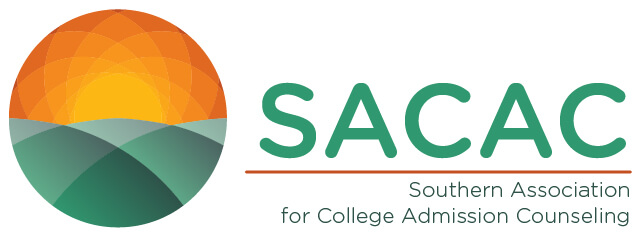
Andrew Colson
Director of Undergraduate Admissions University of Alabama at Birmingham (UAB)
Q: What is your title and organization?
Andrew Colson
Director of Undergraduate Admissions
University of Alabama at Birmingham (UAB)
Q: How long have you been in this role?
1.5 years
Q: What previous roles have you held?
Associate Director of In-State Recruitment, UAB (2021-2023)
Program Manager, UAB Birmingham Promise (2019-2021)
Admissions Counselor, UAB (2017-2019)
Q: What brought you to this particular role?
I’m a UAB alumnus, a passionate native and fan of the Birmingham community, and an incredibly lucky individual who’s had the opportunity to move up within the same department he started in in higher education, a rarity indeed! I am very passionate about improving educational access for the Birmingham metro and Alabama as a whole, and UAB does an excellent job of providing a superb education to all students within a diverse and accepting atmosphere.
Q: How did you get started as a school counselor?
I worked for a non-profit in primarily doing tax prep throughout Alabama. I found I really enjoyed helping people and traveling but I wanted to find something a bit more stable after my AmeriCorps tenure with the nonprofit. I also had the intention of getting my Masters in Public Administration, which UAB coincidentally offered. Harkening back to my undeserved luck mentioned earlier, an Admissions Counselor positions specifically serving Birmingham City School students and a small rural Alabama territory opened up around the same time I started looking for jobs and applying for graduate school. I immediately fell in love with the role, with my first day on the job taking place at Dry-Run!
Q: What is your best piece of advice for someone new to the profession?
I am not outgoing by nature- I’m shy, constantly in my own head, and not usually the first to want to speak to someone new. My advice: fight this urge and talk to your fellow professionals. Having Dry-Run as my first exposure was a great opportunity, as it gave me a “deep-dive” early on and helped me realize how many helpers occupy our industry. Ask questions, be vulnerable, be humble. This not only helps you grow as a new recruiter, but also helps you realize that within a short period of time, you’ll be equipped to be that same helper for students, parents, and your fellow professionals.
Q: Given unlimited time and funding, what one initiative, program, or service would you implement today for your students?
Working with our Promise Cohort at UAB and in Admissions in General, the single biggest barrier to access and retention comes down to cost. I would love to make college more affordable for all students from all backgrounds based on their need. Cost of college, what I consider a public good, should not keep a student from starting or finishing their degree. If they have the desire to be here and the academic ability to succeed, cost should not be the only barrier keeping them from succeeding. The value of college is immeasurable not just to the individual, but to our entire society and we should do more to make it attainable as a nation.
Q: What brought you to SACAC?
As I mentioned before, Dry-Run was my first day at UAB! Being able to meet so many professionals who intimidated and inspired me early on made me want to learn more and get involved. I also owe a debt of gratitude to my Associate Director, Jordan Crenshaw, for getting me involved in my first committee role in Government Relations in 2019/2020. I wouldn’t be where I am today without her leadership.
Q: What has been (or hope to be) the most impactful part of your SACAC membership experience?
Presenting at SACAC Conference in Raleigh this year was surreal. I’ve presented at conferences before, but having this opportunity to share my ideas with people from all over the US was humbling. I felt ill-prepared and ill-fit for the ability to share my knowledge with professionals I hold in high regard. Yet, the response I received was that of appreciation and deference I still feel I do not deserve. To be able to part of someone’s learning journey is a privilege at any stage of their career is an unmatchable honor, and encourages me to keep learning myself and teaching others in our profession.
Q: What is your favorite part of your job?
I’m going to cheat and say it’s a tie: 1) I refuse to be Director that rarely sees students and is off the recruitment trail. I love working with students and providing customer service. My favorite conversation with a student is when they apologize for “bothering me” when asking a question. My response is always the same: “You provide me with job security and a purpose; never apologize for asking questions.”
2) To the same end, I’ve been in a managerial role for about 3 years now and I absolutely training my staff and working with them. Seeing them hit milestones, make goals, have quality conversations, and helping them navigate challenges is a true joy and privilege. I’ve had a slew of great bosses at UAB who’ve done the same for me, so I hope I can help inspire them to do the same for their future employees, because as I tell most of them, “you’ll probably be my boss one day.”
Q: What have you learned about yourself as a professional during the past year?
I still have so much to learn. I say this not as a lament, but as an exciting challenge. Working in higher education, I’m blessed to be surrounded by academics and lifelong learners, so that desire to keep learning has been woven into my view of what a true professional should be. I hope to instill that same passion in those I work with at UAB and with SACAC.
Q: What have you learned about the students you serve during the past year?
As we’ve all likely experienced, Gen Z is an incredibly discerning group of students on the whole. Students are asking questions that I would never have dreamed of at their age, and show a distinct consciousness of what an investment of their time, energy, and resources a college is. They also are looking for the college that is going to help them utilize those resources most efficiently. When we speak about the cost and value of education, students have taught me that this is not just a numbers game- personability, opportunities and vision, and campus culture determine fit just as much as the final price tag and rankings. With that, we have a responsibility to get to know the students we serve, take stock of their unique resources and goals, know our own universities and colleges, and be honest about how they can find a fit. From a recruitment lens, our job should never be to sell a school, but to be that helper on their journey.
Images

